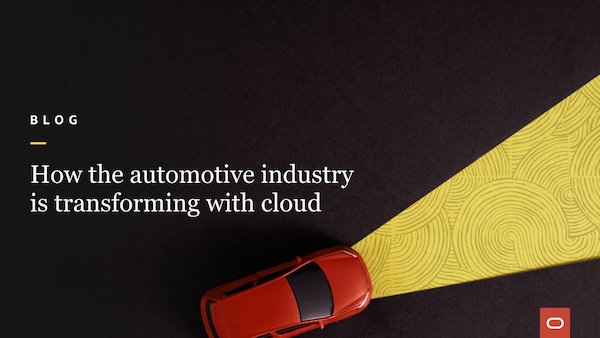Car companies have been leaders in the Industrial Revolution since Henry Ford invented the assembly line. Today, it’s common to see robots working next to autoworkers on the factory floor. The industry ‘s latest advancements come from machine learning that improves the manufacturing process as well as the vehicles. New cars are both digital and mechanical. The data they collect and receive helps companies and consumers in six exciting ways.

1. Improve Factories
Auto machine learning can make factories more efficient. Robots and equipment used to build the cars have sensors that send alerts about defective parts. This can help the manufacturer make a repair before it shuts down the assembly line or causes damage. A study by Capgemini found that by 2023, smart technology could add up to $160 billion each year to the global auto industry with gains in productivity.
Quality control in a factory is also improving due to machine learning. Workers who are tasked with the job have the potential for human error. Systems run with artificial intelligence (AI) can also miss issues if they weren’t programmed correctly. However, machine learning can improve the process by gathering feedback and updating the system. Audi uses cameras that can detect cracks in sheet metal that aren’t visible to the human eye. And GM uses sensors to monitor factory conditions. If the paint area is too hot or cold, for example, the paint won’t set, and the equipment could fail.
2. Predict Inventory Demand
While all companies wish they had a crystal ball to predict sales, few do more than auto companies. Cars are expensive to build, and inventory has a major impact on profits. If a car has higher demand than expected, auto manufacturers can miss sales. On the flip side, if a car has lower demand than anticipated, it may have to be sold at a loss. Machine learning can monitor and analyze market conditions to forecast demand. Volkswagen uses economic, political, and even weather data to predict car sales in 120 countries.
3. Generate Customer Sales
Machine learning can also help car companies sell more vehicles. It can collect data about a customer like demographics, past transactions, and online activities. Using this information, it can create personalized promotions. Cars.com uses machine learning to help customize the car search process. It matches buyers with cars based on a quiz that measures the shopper’s lifestyle preferences.
4. Prevent Problems
AI in the automotive industry also helps the car owner. For example, car maintenance used to be preventative—something you did on a schedule. Drivers got their oil changed about every 3,000 miles and their tires rotated every 8,000 miles. With machine learning, maintenance becomes “predictive.” Instead of basing service on mileage or waiting until a car breaks down, sensors can detect damage and predict problems before they happen and notify drivers via the dashboard or their phones. Drivers can then schedule service at a convenient time for them. With predictive maintenance, it’s possible that recalls or roadside service become things of the past.
5. Communicate With Customers
Machine learning also improves communication with customers. If a car needs service, an automated chatbot can set up and confirm appointments and send reminders. Chatbots can also conduct surveys after service is done to help auto manufacturers and dealerships personalize service. They can even answer customer questions. A study by McKinsey found that a well-designed chatbot could resolve about 80% of customer interactions—reducing costs from call centers.
6. Avoid Collisions
Perhaps the most exciting thing machine learning can do is improve driver safety. Sensors monitor the car’s activity as well as vehicles that are traveling nearby. The car can warn the driver of a dangerous situation or even take action. Infiniti offers Predictive Forward Collision Warning and Forward Emergency Braking features. The technology analyzes the speed and distance between the driver’s car and the two cars in front of it. If the two vehicles in front of the car slow down or brake suddenly, the system alerts the driver. It can even take over and slow or stop the vehicle if the driver doesn’t have time to respond.
Auto Machine Learning Is Driving the Future
Technology is pushing the future of the automotive industry by helping manufacturers build better, safer vehicles. Cars are no longer just vehicles that get you from one place to another. They’re tech-powered devices that can enhance your life, and machine learning is behind the wheel of innovation.





